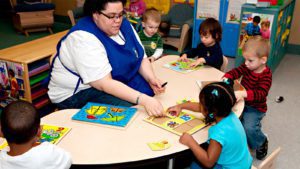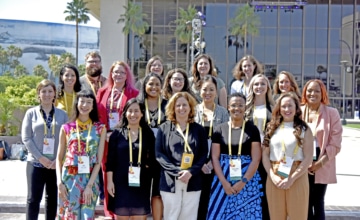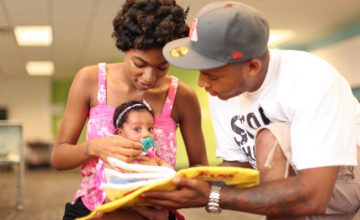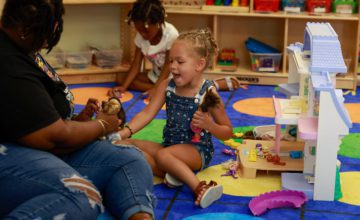New policy statement highlights importance of healthy development for millions of young dual-language learners.
WASHINGTON — A policy statement released today by the U.S. Department of Health and Human Services and Department of Education will support and promote the healthy development of young dual-language learners throughout the country, according to ZERO TO THREE.

Early connections form the foundation of future learning and relationships for infants and toddlers. Credit: Kiwi Street Studios
“The science is clear. Early connections form the foundation of future learning and relationships for infants and toddlers,” said Matthew Melmed, executive director of ZERO TO THREE. “The Administration’s statement honors the demographic reality that the U.S. has a growing population of multilingual families and professionals in need of appropriate, high-quality supports and services designed specifically to help young learners and their families thrive. We applaud this emphasis on harnessing the benefits of multilingualism and promoting the important role of home language development, beginning at birth.”
The policy statement recognizes the importance of implementing policies and practices to meet the needs of young children and families from diverse backgrounds so that each child – across the U.S. – arrives at school ready to learn. It mirrors ZERO TO THREE’s science-informed approach to family and child development, which underscores the need to promote the development and learning of children beginning at birth.
ZERO TO THREE’s Transcultural Innovation Initiative offers an array of resources dedicated to creating a working culture that values and honors the strengths of all linguistically and culturally diverse families and communities. It works to identify ways to translate the science of early development into practical ways stakeholders can promote and nurture transcultural understanding and inclusion. More information about the initiative is available on zerotothree.org.
About ZERO TO THREE
ZERO TO THREE works to ensure all babies and toddlers benefit from the family and community connections critical to their well-being and development. Since 1977, the organization has advanced the proven power of nurturing relationships by transforming the science of early childhood into helpful resources, practical tools and responsive policies for millions of parents, professionals and policymakers. For more information, and to learn how to become a ZERO TO THREE member, please visit zerotothree.org, facebook.com/ZEROTOTHREE or follow @ZEROTOTHREE on Twitter.



